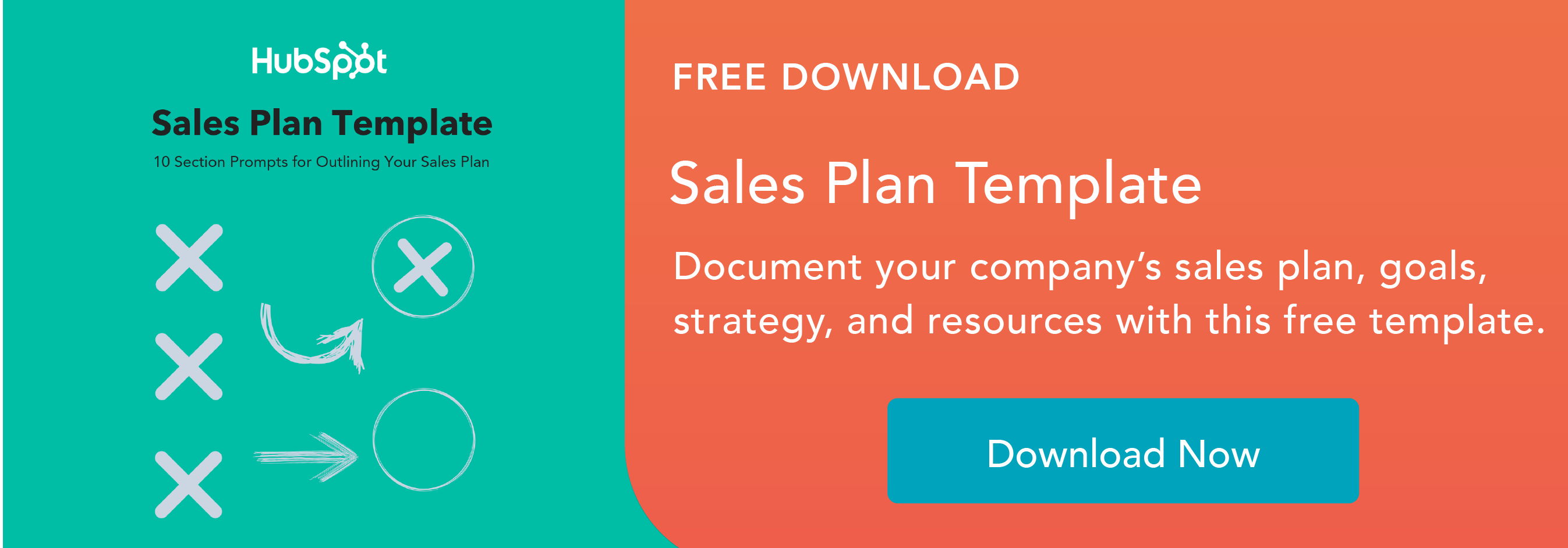Every holiday season, you‘ll find reps eager to avoid a winter slump and close more deals. Why? Well, let’s face it. Deals closed on December 31 carry more weight than deals closed on January 2.
The holidays can be a tense time for salespeople, but much of that pressure is self-imposed. The challenge stems from salespeople using the same strategies to close business in December that they use to close business in July. End-of-year selling requires a different approach.
Here are ten ways to sell differently this holiday season. Employ these tactics now to avoid the winter slump and be more prepared to end the year on a high note.
10 Ways to Close Deals Around the Holidays
Your holiday sales playbook must go beyond offering discounts.
Your customers are smart. They know you‘re trying to close as many deals as possible around the holidays. They also know the discount you’ve extended or the special terms you've offered are just there to get them to sign on the dotted line.
Test out these strategies to have a productive December, avoid a winter slump, and close more deals.
.webp)
1. Map out your key dates.
According to HubSpot Sales Director Dan Tyre, figuring out the key dates for the season as early as you can is key to getting ahead for the holidays. Planning your sales activities around the dates and days of the week of major holidays.
Let‘s use an example related to Thanksgiving in the US, which always takes place on the fourth Thursday of November. Some businesses are off the entire week, and many start to slow down on Tuesday and Wednesday before Thanksgiving on Thursday. Additionally, 50% of companies don’t open the day after Thanksgiving.
Working through your calendar can help you understand that many people you are trying to sell to likely won't be responsive or present for sales conversations during that week, so you should plan around that data.
In Australia, businesses start on holiday around mid-December. By December 15, most businesses in the country close, so if you sell to customers there, taking the major holiday dates into consideration can prevent surprises.
HubSpot Sales Manager Annalisa Specter echoes this advice.
"I recommend clarifying early and often what out-of-office time will look like for your prospects over the holidays,” she says. “You can even weave it into your early rapport on a discovery call by asking what their holiday plans look like and if they are taking any time off.”
It's also important to ask who else needs to be involved in the decision-making process and what their time off schedule looks like. “Nothing is worse than being at the finish line with a deal and being surprised when a decision maker is out of office and unreachable,” says Specter.
2. Start setting expectations with your team and prospects early.
For HubSpot Senior Sales Manager Mintis Hankerson, preparation is key when it comes to reaching her sales goals by the end of the year.
“To succeed during the holiday season, I always prepare in advance,” says Hankerson. “By November, I know exactly what's in my team's pipeline, and I know what is coming for the rest of the year,” Hankerson says.
She recommends mapping out a plan before the holidays to know exactly where your team stands and what number you need to hit before the end of the year. During this time, it is also important to set clear expectations with your prospects, letting them know what timeline you're working on and encouraging them to move through the sales process efficiently.
Tyre agrees with this advice, encouraging reps to work backward to determine when key milestones need to be reached in order to close their deals in time.
"I start very early in the quarter asking clients, ‘When do you want to implement this solution?’” he says. “Most people will say ‘by the end of the year,’ which can come up quickly.”
Tyre continues, “[I respond], ‘Great! That means we need to have onboarding done by December 15, installation by December 5, the purchase needs to be completed by November 20, and proposals need to be completed before that.’ When you start looking at your timeline in reverse, you realize you don't have much time to waste.”
The good news is that many people understand that making purchasing decisions around the holidays, so being a good project manager and scheduler can be a great benefit to the customer and can establish some urgency.
3. Make your end-of-year close December 10.
Any concessions (whether pricing or terms) should expire on December 10 instead of December 31. This forces negotiations to take place before stakeholders in Procurement and Legal are out of the office — something your well-meaning prospect might not have considered.
If you introduce an expiration date for terms or discounts and your prospect says they‘ll still need a few weeks to decide, say, "That’s fine, but this current discount will expire on December 10th."
This distances you from the stress of closing deals during the holidays and shifts the scramble to your prospect.
If they still can't close by December 10 but are actively interested in locking in a discount or terms, ask your prospect what they can do by the 10.
If they can give you something as simple as a purchase number, you've succeeded in moving the deal forward. But hopefully, the urgency of an expiring discount gives your prospect the push they need to meet your December closing deadline.
4. Close for post-sale activity.
Representatives from your prospect's finance, legal, and procurement teams, and much of the executive staff, will likely be busy or on vacation beginning December 15. While most mid-level prospects are winding down for the year, operations and executive teams are often busy finishing important paperwork, planning for the new year, and balancing budgets.
Without these stakeholders, even your most eager prospects won't be able to move their deals forward. The solution? Close for post-sale activity.
In mid-November, tell your prospect, “Nick, I know you want to get this product/service implemented as quickly as possible. You should know our January onboarding schedule is booking up fast. If we don't get this scheduled in the next week, it might be February or March before we can onboard you.”
If you‘ve inspired enough urgency, your prospect should say, "Oh really? Is there anything we can do to secure an earlier onboarding slot?" Reply, "We have a few spots open in December. If we can get the paperwork finalized, I’ll schedule your onboarding for next week."
When you explain that waiting until January to close will push onboarding and training until February or March, it puts the advantages of closing quickly into perspective. That can be the jolt your prospect needs to attain final approvals as soon as possible.
5. Push new business to January.
This might sound contrary to the nature of sales, but hear me out. Most new opportunities in mid-to-late November are not going to close by the end of the year. This means they're simply taking up time and resources you could be using to close existing opportunities.
If a prospect‘s requesting a December demo or late-November trial, simply say, "I’m afraid our trials are spoken for through December, but I can get you scheduled first thing in January."
Your prospect might say, “Great, let's get January in the books,” which allows you to focus on deals that have a real chance of closing before the end of the year.
And if your prospect says, “Is there anything you can do to squeeze us in this December,” this signals you have a motivated buyer who might close quickly. Capitalize on their eagerness and move forward accordingly.
Instead of packing your December calendar with demos and trials, book a meeting with a client who's just about to close or devote extra time to coaching a prospect through gaining executive buy-in. These are subtle shifts that will help you come out on top of your end-of-year number.
6. Commit to an aggressive discovery call schedule in December.
One of the biggest mistakes you can make is waiting until January to fill your pipeline. You should begin filling your new-year pipeline in December.
“Think about making pipelines as healthy as possible at the start of Q4, or at least one full sales cycle before the start of winter,” recommends Charles Mathias, head of sales at Parabol. He adds, “We can also pre-prospect by looking at leads that we want to contact in the new year.”
Schedule discovery calls with new prospects in December. And book as many as you can, regardless of qualification.
This will accelerate the sales process, so your January will be filled with qualification conversations. And it will propel you forward despite the emotional roadblock you might hit when the calendar flips to the new year.
7. Spend time on internal activities at the end of December.
Take some time in December to work on internal activities that will benefit you and your colleagues in the new year. Mathias says his team uses this time to “play catch-up” by updating sales collateral and internal data reporting.
For Lily Huang, sales specialist at LSEG, this time of the year can be a good time to conduct research and collect data for lead generation.
“Dig through [industry] news articles and LinkedIn [to note] any role changes or major events from prospects that the outbound team can leverage as a conversation starter,” she recommends.
December is also a good month to revisit and reenergize internal connections. Meet with people in product marketing, operations, customer service, etc. Ask about upcoming product enhancements and marketing campaigns. And get insight into the company's roadmap and goals for the first half of the year.
Meeting with colleagues in different departments will give you a clearer idea of the direction the company is going in the upcoming year. And it‘s always beneficial to know of any organizational changes ahead of time. This way, you’ll be prepared to hit the ground running when you get back from your holiday break.
8. Do some public speaking in December.
Flex your presentation muscle and look for public speaking opportunities in December. Is your alma mater hosting an alumni panel for current students? Are there any conferences you can speak at? Perhaps local community events that could use your sales expertise?
Ask your friends, colleagues, or manager if there are any marketing or sales events you can speak at or if there's a webinar you can host.
You could even assist human resources with onboarding new hires. It's a good way to practice your presentation skills without having to do it in front of a prospect or customer.
9. Have key contact information in place.
Tyre recalls a common mistake salespeople make when they're working on a tight deadline.
"When I show up to work with salespeople at the end of the month and say ‘Let‘s call the contact’s cell phone’ in hopes of closing a deal and I hear ‘...I don't have it,’ I realize we have made a crucial mistake.”
In the second or third meeting, Tyre asks, “Who is my SPOC (single point of contact) for this initiative?”
“When they introduce me to my SPOC, I ask them, ‘Are you a text person or phone person?’ In my experience, many people say they prefer texts. I then ask them for their phone number and immediately text them saying, ‘Now you have my contact information (and I have yours) if we need to quickly touch base,’" Tyre says.
Having contact information in place so you know exactly how to get a hold of key decision-makers can save you precious time so your team isn't scrambling at the end of the year.
10. Unplug when you need to.
Sales isn’t easy. At the end of a busy year, taking some time off to spend time with family and decompress is important.
“The best time for salespeople to recharge is when their prospects are doing the same,” says Mathias. “Taking the time away you need prevents burnout and increases productivity when you’re back in the office.”
If you've planned ahead and need some time off, Tyre recommends being upfront, saying, “I'm going to be offline from December 24 through December 31 so let me know how I can help before my time off.”
This clear message shows empathy and realism, and many people are understanding and accommodating.
Try a different approach, and see how the holiday selling season treats your stocking this year. And if you're looking for more ways to close your December deals, check out these sales closing techniques next.
Editor's Note: This piece was originally published in December 2018 and has been updated for cohesiveness.
Sales Closing






![Sales Close Plan: The Best Tool to Close Way More Deals [Template]](https://53.fs1.hubspotusercontent-na1.net/hubfs/53/sales-close-plan-1-20241125-8524726.webp)

![How Close Rates are Shifting in 2024 [New Data]](https://53.fs1.hubspotusercontent-na1.net/hubfs/53/close-rate.webp)
![Sales Pros Say This Tool is Key to Driving Sales: How to Close More Deals With It [Data]](https://53.fs1.hubspotusercontent-na1.net/hubfs/53/85_Best-Sales-Strategies.png)



